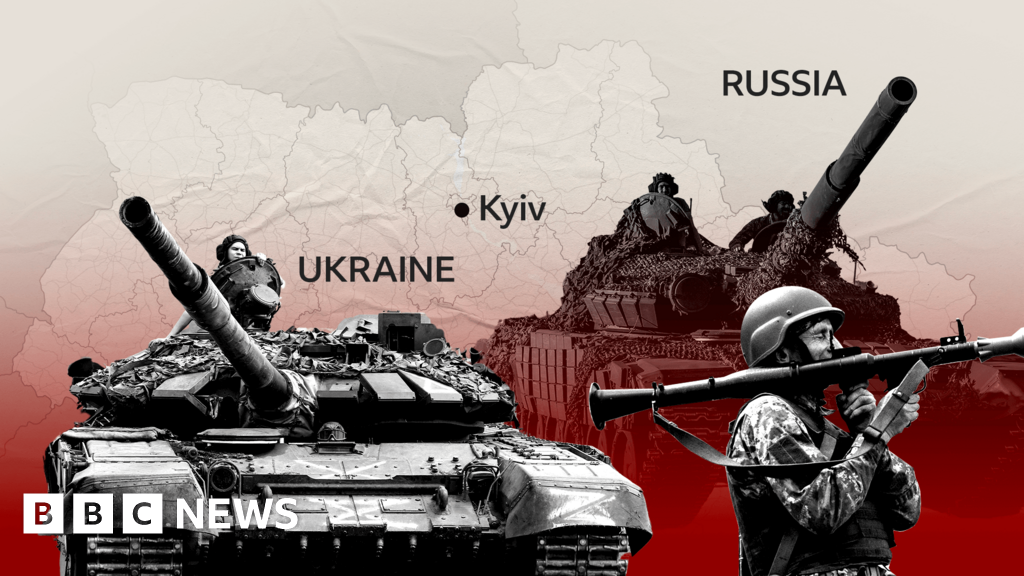
Did UK Set Coordinates for Ukraine Missile
That Struck Russian Gas-metering Station?
RT News
MOSCOW (March 29, 2025) — France and the UK actively aided Kiev in a strike on the Sudzha pipeline infrastructure in Russia’s Kursk Region on Friday, Foreign Ministry spokeswoman Maria Zakharova has told journalists. Earlier the Russian Defense Ministry said that a metering facility was “de facto destroyed” in a Ukrainian HIMARS attack.
“[We] have reasons to believe that targeting and navigation were facilitated through French satellites and British specialists input [target] coordinates and launched [the missiles],” Zakharova said, commenting on the strike.
“The command came from London,” she said, branding the attack part of a Ukrainian “terror” campaign targeting Russian energy infrastructure. The spokeswoman added that such actions demonstrate that Kiev is “impossible to negotiate with.”
Although Ukraine’s Vladimir Zelensky “publicly supported” a temporary suspension of strikes on energy infrastructure agreed by Moscow and Washington, he “did nothing to observe it,”according to Zakharova.
Moscow ordered that attacks on Ukraine’s energy infrastructure cease on March 18, following a phone call between presidents Vladimir Putin and Donald Trump. Russia and the US also agreed on a list of energy facilities that should not be targeted as part of a truce earlier this week. The list included gas facilities.
Kiev also agreed to a US-proposed 30-day partial ceasefire following talks between Ukrainian and American delegations in Saudi Arabia on March 15. Zelensky hailed the development and even described it as a diplomatic “victory” for Ukraine, but did not publicly mention any relevant orders to the Ukrainian military.
The Russian Defense Ministry has regularly reported on Ukrainian attacks on Russian energy infrastructure over the past few weeks. Earlier on Friday, Kremlin spokesman Dmitry Peskov told journalists that the strike suggested that the Ukrainian military no longer follows Kiev’s orders due to a “total lack of supervision.”
Paris and London have emerged as the staunchest supporters of Ukraine in the face of a gradual shift in Washington’s position under the new Trump administration. In early March, British Prime Minister Keir Starmer and French President Emmanuel Macron said that their nations were ready to lead a “coalition of the willing”—a group of pro-Ukrainian countries prepared to support Kiev with troops and aircraft.
Russia has vehemently rejected any possibility of NATO-aligned European troops deploying to the conflict zone. It has accused France and Britain of hatching plans for “military intervention in Ukraine,” which could lead to a direct armed clash between Russia and NATO.

EU and NATO ‘Preparing for War” with Russia
RT News
https://www.rt.com/news/614919-eu-ukraine-war-rebranding/
MOSCOW (March 29, 2025) — Hungarian Foreign Minister Peter Szijjarto has accused Brussels bureaucrats of clinging to a “failed pro-war policy” in a desperate attempt to delay the moment when European taxpayers begin asking where the money spent on bankrolling Kiev has gone.
The European Union recently advised its 450 million inhabitants to stockpile essential supplies for at least 72 hours, with EU Commissioner for Crisis Management Hadja Lahbib warning on Wednesday that the Ukraine conflict threatens the bloc’s overall security.
Szijjarto said he initially thought the warning was some kind of joke or “trolling,” after Lahbib posted a bizarre video showing Europeans what to pack in a 72-hour survival kit.
“But why, in the 21st century, should EU citizens prepare a survival kit? There’s only one explanation: Brussels is preparing for war,“ Szijjarto wrote in a post on X on Friday. “At a time when there’s finally a real chance for a ceasefire and meaningful peace talks with [President Donald Trump’s] return to office, Brussels is going in the opposite direction, clinging to a failed pro-war policy.”
Why? Because as long as the war continues, pro-war European politicians can avoid taking responsibility for three years of failure, and avoid answering an extremely uncomfortable question: where is the money that was sent to Ukraine?
EU institutions in Brussels and individual member states have spent over €132 billion over the past three years supporting Kiev, and have pledged an additional €115 billion that has yet to be allocated, according to data from Germany’s Kiel Institute.
Since taking office, US President Donald Trump has pushed for a diplomatic resolution and sought to recoup what he estimates to be over $300 billion in US taxpayer money that his predecessor “gifted” to Kiev. Washington recently brokered a limited ceasefire between Ukraine and Russia, placing a moratorium on attacks on energy infrastructure. Kiev, however, has repeatedly breached the ceasefire terms, according to Moscow.
Despite the ongoing peace process, the EU has continued to push a hawkish agenda. European Commission President Ursula von der Leyen recently unveiled an €800 billion plan to ramp up military spending through loans.
Meanwhile, France and the UK continue to advocate for the deployment of a military contingent to Ukraine. Speaking after a summit in Paris on Thursday, French President Emmanuel Macron announced that a so-called “coalition of the willing” will seek to deploy a “reassurance force” to Ukraine after a peace deal with Russia is reached.
The proposal to send troops has already been rejected by several EU members. The “coalition of the willing” – a phrase originally coined by the US in 2003 to describe countries backing the invasion of Iraq – now mostly refers to states that have pledged to continue supporting Kiev militarily, without necessarily committing to troop deployments.
READ MORE:
France and UK rebrand possible military deployment to Ukraine